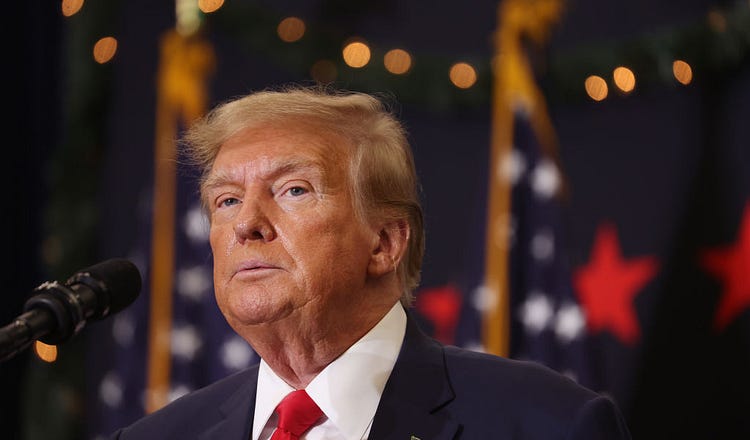Bill Barr: I Oppose Trump—and Any Efforts to Ban Him From the Ballot

Donald Trump looks on during a campaign event on December 19, 2023 in Waterloo, Iowa. (Scott Olson via Getty Images)
The 2024 election poses grave challenges to our institutions. Unconstitutional measures will bring even greater dangers.
877
In Colorado and Maine, state officials have decided to remove Donald Trump from the primary ballot, claiming the need to protect democracy. A number of other states, including Arizona, Nevada, Oregon, New Mexico, and New York, are considering taking the same step.
Many who oppose the 45th president hail these legal maneuvers as a neat way to stop Trump—…
Continue Reading The Free Press
To support our journalism, and unlock all of our investigative stories and provocative commentary about the world as it actually is, subscribe below.
$8.33/month
Billed as $100 yearly
$10/month
Billed as $10 monthly
Already have an account?
Sign In

